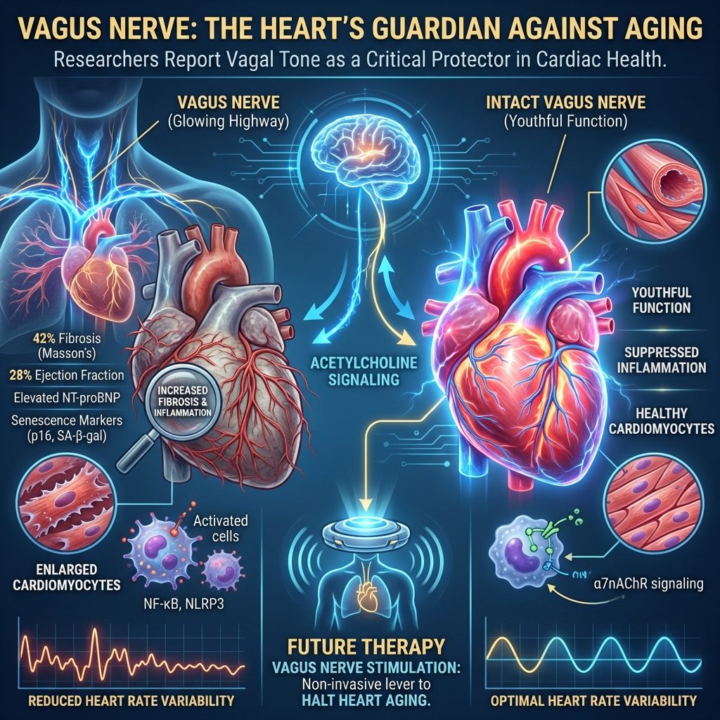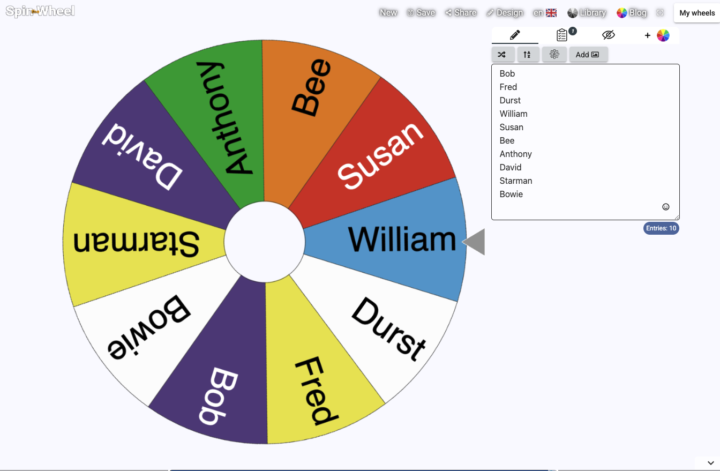Activity
Mon
Wed
Fri
Sun
Feb
Mar
Apr
May
Jun
Jul
Aug
Sep
Oct
Nov
Dec
Jan
What is this?
Less
More
Memberships
US
Ultra School
160 members • $7/m
VS
Vagus School
500 members • Free
10 contributions to Vagus School
Vagus nerve stimulation following brain injury
Good afternoon all. I'm interested to learn whether any of you have experience of vagus nerve stimulation after severe brain injuries and whether or not it was beneficial. Any snippets of info would be very much appreciated.
Broken Heart? Your Vagus Nerve May Be The Culprit
Heartbreak literally broken? Maybe your vagus nerve is ghosting you. Scientists snipped cardiac nerves in mice, mimicking a bad breakup. Their hearts aged faster! Fibrosis spiked, ejection fraction tanked. Ouch. Think clogged highways and grumpy heart cells. The vagus nerve, it seems, whispers sweet nothings (acetylcholine!) that chill out angry inflammatory molecules. No vagus? Inflammation party! But here's the plot twist: electrical zaps jumpstarted those nerves. Fibrosis? Reversed! Like a love song rewinding time. So, boost that vagal tone! Meditate, breathe deep, maybe sing to your heart. A happy vagus = a youthful ticker. Who knew?

CFS: a herpesvirus infection of the vagus nerve?
For years, CFS researchers have been looking in plasma and blood cells for a pathogenic agent that causes the myriad of symptoms experienced by patients with the condition. However, according to VanElzakker, they may have been looking in the wrong place (plasma) and need to search instead in the tissues of the peripheral and central nervous system. During infection, the sensory vagus nerve sends a signal to the brain to initiate “sickness behavior,” an involuntary response characterized by fatigue, fever, myalgia, depression, and other symptoms that are often observed in patients with CFS. However, VanElzakker proposes that when sensory vagal ganglia or paraganglia are themselves infected with any virus or bacteria, these symptoms would be exaggerated. He notes that many of the symptoms of sickness behavior (such as fatigue, sleep changes, myalgia, cognitive impairment, depression and zinc depletion) are also mediated by proinflammatory cytokines and observed in CFS. Any thoughts? https://pubmed.ncbi.nlm.nih.gov/23790471/

Today's Raffle to Win a Vagus Nerve Stimulation or Ultrasound Related Tool !
Excellent and Welcome ! Today, we are performing our on-campus event ! (Tuesday and Monday) Please enter your name below to enter into a "Spin the Wheel" raffle. Only enter your name IF you are present at the event, please ! lol :P Just write a comment below and type your First Name to be entered. You will be entered to win either a Vagus Nerve Stimulation breathing device OR an Ultrasound levitation electronics kit ! (Because this event is of-course brought to you by the Ultrasound Club on Campus.) Btw, if you are interested in Electronics and want to get involved in Ultrasound development, and learn more about how Ultrasound is also utilized to Stimulate the Vagus Nerve and other neurologically important things, reach out to Sterling and inquire for more information. Cheers, and Good Luck !

1-10 of 10
Active 14h ago
Joined Feb 15, 2025
Powered by




